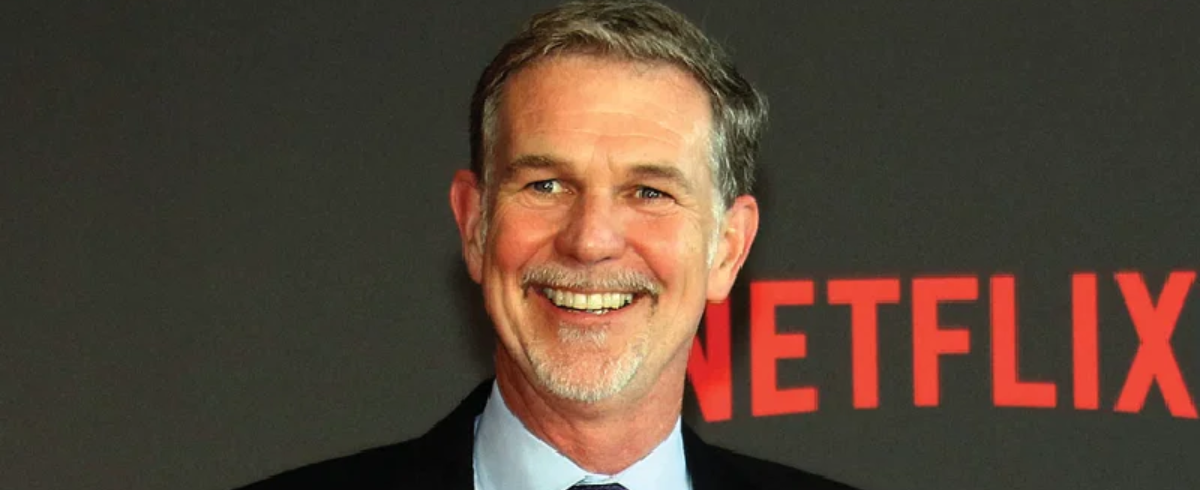Over the past few years I have often felt like Cassandra with my dire and pessimistic economic predictions. This fundamental pessimistic outlook was so contrary to my fundamentally optimistic outlook on life that during the past few months I have essentially stopped making political economic analysis. I did not want to be “that guy” – the one who is always pessimistic and down when people want and maybe need to hear positive things.
However, as the disparity between the consensus economic outlook and my own predictions has grown, I feel I can hold my silence no longer. In so doing, I feel I have solved my dilemma with cognitive dissonance: I can be a pessimistic optimist!
My optimism is deep, potentially delusional, but a quintessential part of who I am. I have always been optimistic about humanity’s potential, specific individuals’ ability to overcome their selfish, egotistical, self centered worlds to accomplish amazing things and about what the future has in store for us all – from humanity as a whole to my friends, family and me!
My pessimism is more temporal and well defined. It is driven by bad economic policies and their consequences on the macroeconomic environment, human welfare and potential negative geopolitical implications.
Over the past few months, we have seen renewed optimism all around that the worst is behind us with pundits, investors and politicians alike claiming that a new period of growth is looming. You can see part of this renewed euphoria in the Dow passing the 10,000 mark recently. There are many fundamental reasons to think this optimism is delusional and that we have years of subpar growth ahead of us.
From a technical perspective, we may no longer be in a recession, which is defined by two consecutive quarters of negative GDP growth, but that does not mean that we will see robust growth at anywhere near the potential growth rate of the economy.
Many fundamental imbalances remain while many of the policies being implemented are unsustainable.
Imbalances Remain
The financial crisis was supposed to lead to deleveraging, but has actually led to increased leverage. Companies and banks have partly delevered but consumers and governments have increased their leverage significantly. Consumers did save $100 billion more in the US in the last year. However, this was overshadowed by a $7 trillion loss in the value of the equity in their houses. Moreover, governments are levering up with many OECD countries facing budget deficits over 10% of GDP this year. Repaying all this debt will take years of parsimony which in turn will lead to subpar growth.
While a financial meltdown has been averted, the credit creation process is still broken for small businesses. Banks are generating profits by essentially borrowing risk free from the government and investing it in government paper at 2% (which when you think about it is indirect quantitative easing) instead of lending. Large companies are tapping the bond markets, but small businesses have essentially no access to credit. With credit creation inexistent, small businesses which have historically been a huge generator of growth and new jobs cannot grow. Moreover, historically individuals have used home equity loans as a means of funding new small business. With home equity ravaged, small business creation will be hampered.
It’s also far from clear that we have reached a bottom in real estate. With unemployment around 10% and no improvements in sight, a glut of supply given the wave of repossessions, foreclosures running at record levels and a rise in negative equity, the overhang of unsold homes will remain dauntingly large. While subprime variable loan resets have mostly taken place, there are lots of rate resets pending, especially for the Alt-A category and option ARMs.
The commercial real estate market also seems particularly weak. Foresight Analytics, a research firm, reckons that $594 billion of commercial mortgages will mature in the US between 2009 and 2011. Many of the borrowers will have big problems when their loans mature. Loan-to-value ratios have fallen from 85-95% in 2006-2007 to 60-65% and below suggesting borrowers will have to stump up cash they don’t have to refinance. In addition, commercial property prices have fallen by 35% and the full effects of the bust are only just beginning to be felt. Losses on commercial property tend to lag behind rises in the unemployment rate by a year or so because the lease terms protect landlords form immediate falls in rental income. Delinquencies are spiraling and bank write-offs are becoming increasingly common. Banks have many more write downs ahead of them in commercial real estate.
The financing of the current account deficit seems unsustainable as well. Long term yields are being kept low by Chinese purchases of Treasury Bills bonds which allow them to keep the Yuan’s rise in check and prevent too rapid a dollar devaluation that would cause a significant loss on their $1 trillion in dollar assets. In the long run, it seems inconceivable that the Chinese will keep building their dollar assets in the face or rising budget deficits and money creation suggesting a devalued US dollar.
While the US still has the privilege of being the reserve currency, it can print money to meet its obligations. However, you cannot print your way to prosperity! Printing will ultimately devalue the dollar. While inflation is not a near term threat given the deflationary pressures on the economy, dollar depreciation is highly likely in the medium term.
Unsustainable Policies
Over the past decade, we have seen a huge misallocation of capital with a disproportionately large share going to real estate. This is not an investment which leads to productivity growth, the ultimate long term creator of wealth. Given that the decline in residential real estate prices has been the root cause of the crisis, the Obama administration seems determined to limit the downwards pressure on prices by reflating real estate by a combination of measures such as first time buyer tax credits and encouraging the Fed to keep interest rates at record lows.
The solution to the bursting of a bubble is not to reflate that bubble! As I wrote in a previous article (Whodunit?), there were many causes for the real estate bubble. One of those was keeping interest rates too low, too long which led to too much risk taking in the pursuit of yield and helped inflate the bubble. Trying to reflate real estate will only continue unproductive capital misallocation and delay reaching the market equilibrium.
From cash for clunkers programs for cars, to tax credits to subsidies to favored industrial champions, this recovery is dependent on government largesse and not fundamental growth. This largesse is bound to end. Ultimately, if the governments keep unsustainable spending patterns markets will take fright and push up yields, nipping the recovery in the bud. In Japan, an early rise in taxes necessitated by the increase in government debt led to a recessionary relapse in the mid-1990s.
If Japanese policy makers had to redo the decisions they made over the last 20 years, they would probably focus on cleaning up bank balance sheets quicker while not taking on as much government debt as they did which ultimately did not take them out of the recession. The good news is that infrastructure investment in the US has the potential for higher ROI than the Japanese investments. However, it’s far from clear that the current increase in government is being put to good use.
There is reasonable evidence that all this government spending is crowding out private investments which have historically had much higher returns on investment. The government should have focused its efforts on:
- Cleaning up bank balance sheets such that they could lend again as opposed to having walking zombies which need to earn themselves back to health.
- Not throwing good money after bad by spending billions on saving car makers, subsidizing housing, car purchases, etc.
- Investing on job retraining for displaced workers and those in long term unemployment.
- Not starting trade wars by blocking access to the US to Mexican truckers or imposing tariffs on Chinese tires.
- Investing in high ROI infrastructure projects – especially public transportation projects in the largest cities.
- Using this unique opportunity to reform healthcare to really put incentives in place to reduce costs (as opposed to the current proposals which increase coverage, a necessity, but don’t address many of the fundamental issues driving healthcare costs up).
Conclusion
We seem to be following the example of Japan which has shown that household balance sheet problems take years to play out. The economy might no longer technically be in a recession but economic growth will be subpar and job creation anemic – probably with high volatility despite the overall sideways move in economic growth.
For entrepreneurs, the main conclusion should be to keep your burn low and prepare to be in it for the long haul. Given the volatility, be tactical and take advantage of changes in sentiment by raising money when you can or exiting when opportunities present themselves.
As an individual, be careful how you spend your money especially on large items like real estate and cars!
P.S. Even though, I am extremely bullish about a country like Brazil, I don’t mention diversifying out of the dollar because as long as you live and earn money in the US, it does not fundamentally matter what the dollar is worth because both your costs and earnings are in dollars.




